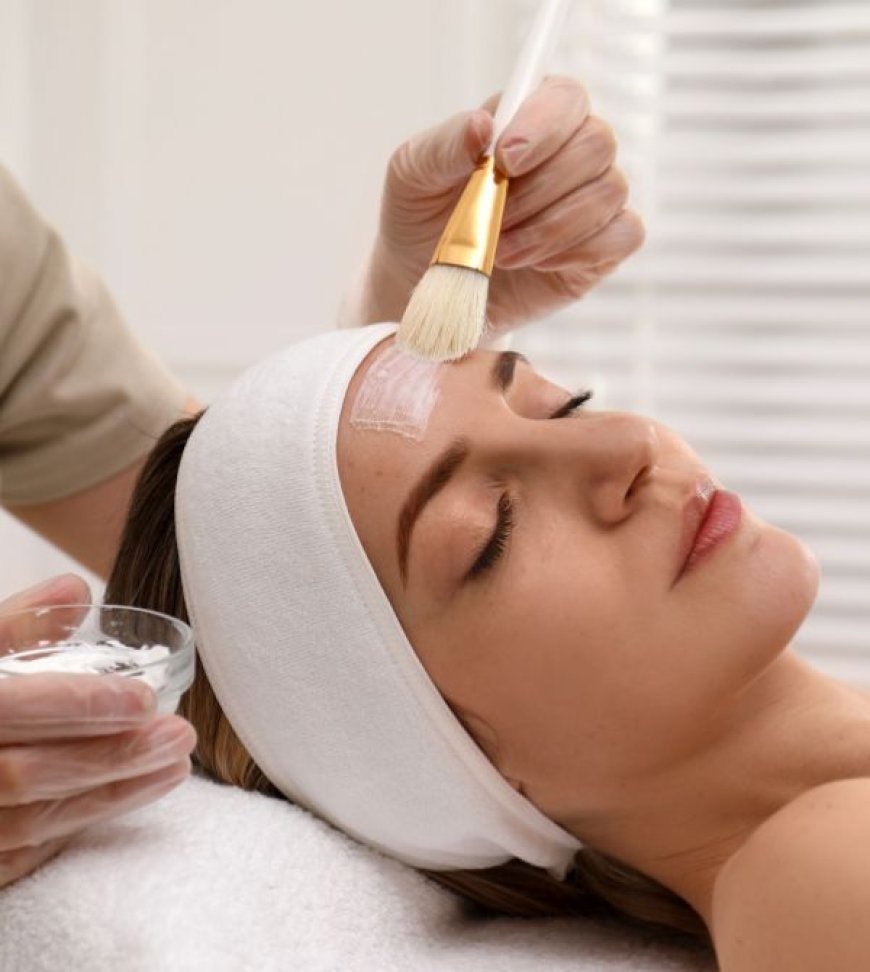The Best Chemical Peels for Sensitive Skin
Your skin is treated with a chemical solution that damages or traumatizes the layers of your skin. Eventually, the skin layers come off to show skin that is younger. The new skin typically has a more even hue, a brighter complexion, and fewer creases and lines.

Sensitive skin can pose unique challenges when it comes to skincare treatments, including chemical peels. However, with the right approach, chemical peels can offer significant benefits even for the most delicate skin types. If you’re considering Chemical Peels in Islamabad, it’s essential to choose the right type of peel to ensure safety and effectiveness.
Understanding Sensitive Skin
Sensitive skin is often characterized by redness, irritation, and a heightened reaction to various environmental factors and products. When selecting a chemical peel for sensitive skin, it’s crucial to opt for milder formulations that won’t cause excessive irritation. Here, we explore the best types of chemical peels that are suitable for sensitive skin.
1. Lactic Acid Peels
Lactic acid, an alpha-hydroxy acid (AHA), is derived from milk and is known for its gentle exfoliating properties. Lactic acid peels effectively remove dead skin cells while hydrating the skin, making them an excellent choice for sensitive skin. They help improve skin texture and tone without causing significant irritation.
Benefits:
- Provides gentle exfoliation
- Hydrates and nourishes the skin
- Improves overall skin texture
2. Salicylic Acid Peels
Salicylic acid is a beta-hydroxy acid (BHA) that penetrates deep into the pores, making it a fantastic option for those with sensitive, acne-prone skin. It helps to unclog pores, reduce inflammation, and prevent future breakouts without being overly harsh on the skin.
Benefits:
- Deep cleanses pores
- Reduces acne and inflammation
- Suitable for oily and combination skin types
3. Jessner’s Peel
A Jessner’s peel is a combination of lactic acid, salicylic acid, and resorcinol. While it’s slightly stronger than a straightforward lactic or salicylic acid peel, it can be tailored for sensitive skin by adjusting the concentration of ingredients. This peel is effective for treating pigmentation issues and improving skin texture while remaining gentle.
Benefits:
- Treats pigmentation and uneven skin tone
- Enhances skin texture
- Can be customized based on sensitivity levels
4. Glycolic Acid Peels
Glycolic acid, another AHA, is commonly used in chemical peels due to its effectiveness in exfoliation. For sensitive skin, lower concentrations (typically around 10-20%) can be used to minimize irritation while still providing results. Glycolic acid helps to improve skin clarity and reduce the appearance of fine lines.
Benefits:
- Improves skin clarity and texture
- Minimizes fine lines
- Enhances radiance
Tips for Choosing and Using Chemical Peels
- Consult a Professional: Always consult with a dermatologist or skincare professional to determine the best peel for your skin type and concerns.
- Patch Test: Before applying any peel, conduct a patch test on a small area of skin to check for adverse reactions.
- Follow Aftercare: Post-peel care is crucial. Use gentle, hydrating products and avoid sun exposure to promote healing.
Conclusion
Choosing the right chemical peel is essential for achieving optimal results, especially for those with sensitive skin. If you’re considering Chemical Peels in Islamabad, the SKN Cosmetics Clinic offers tailored solutions to meet your unique skincare needs. Invest in your skin today and experience the transformative effects of chemical peels!
What's Your Reaction?
























